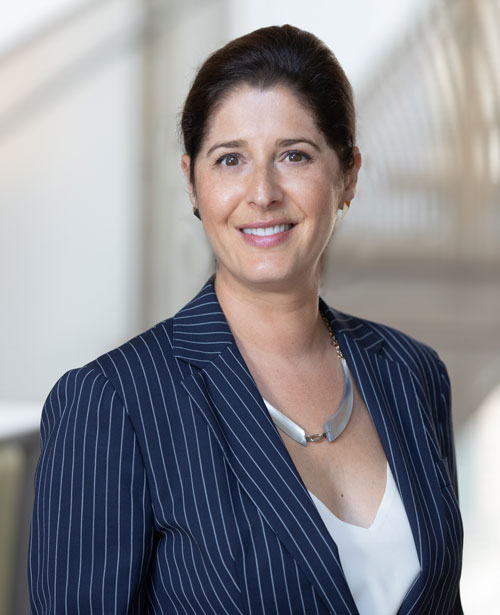OICR-supported research led by Dr. Yvonne Bombard aims to understand and overcome barriers that have kept racialized populations from accessing genetic services.
Genetic testing can help detect cancer early, when it is most treatable, and even help prevent it altogether.
A genetic test can tell you if you inherited variations in your DNA that make you more likely to develop cancer. From there, you can be referred to high-risk screening programs designed to find cancer as early as possible, or surgeries that can reduce your risk of developing cancer at all.
But genetic testing is only beneficial if you can get a test in the first place and get meaningful results from it. Unfortunately, people from certain racial and ethnic backgrounds have largely been excluded from genetic testing and research.
Data from the U.S. suggests that people from Black communities are about 16 times less likely to get referred for a genetic test than white people, and are also less likely to receive conclusive test results. A small number of Canadian studies suggest that racialized communities face similar challenges in Canada.

Dr. Yvonne Bombard has dedicated much of her career to studying how to improve genetic services, including tackling issues around access. As Genomics Health Services Researcher at St. Michael’s Hospital (Unity Health), Associate Professor in the University of Toronto’s Institute of Health Policy, Management and Evaluation, and Canada Research Chair in Genomics Health Services and Policy, she works closely with patients and healthcare providers on solutions.
In one of her latest studies, funded through OICR’s Innovation to Implementation program, Bombard is engaging directly with racialized communities in Ontario to understand the barriers stopping them from accessing genetic testing.
OICR News recently spoke to Bombard about this study and her other work to make genetic services more equitable.
What sort of challenges do racialized populations face in getting a genetic test?
There are barriers present across the whole healthcare journey.
To start, you need a referral from your family physician to get an appointment for genetic testing. That requires that you have a family physician in the first place. Unfortunately, many people have trouble accessing a family physician, and these challenges disproportionately affect racialized populations.
There are also eligibility criteria for genetic testing related to your family history of cancer that can be a barrier for some communities. If you’ve been separated from your family because of historical or recent strife, for example, you may not know your complete family history and or have access to health records. In some communities, it’s taboo to discuss personal health information, even within your family members, and all of this can prevent someone from meeting the criteria for genetic testing.
What if someone from a racialized background is able to get a referral for a genetic test. Are there still barriers?
The other big issue is that the genomic databases we use to interpret people’s genetic test results are mostly made up of data from people of European ancestry. We simply don’t have enough genomes from Black, Indigenous and other racialized communities to determine whether changes found in their DNA are harmless or harmful.
Without enough data, these populations are more likely to get inconclusive results from genetic tests. That means their care isn’t managed any differently and they don’t get access to high-risk screening programs, surveillance, or prophylactic surgeries. Therefore, it’s not surprising that racialized individuals also see higher rates of morbidity and mortality from cancer.
How are you hoping to address these inequities in your OICR-supported research?
We’re starting with a qualitative study where we interview people from these communities and ask them about their lived experience with genetic services. We want to hear from them about any barriers they face, and we’d love to hear about any potential enablers to access as well. We’ll also be interviewing genomics researchers, healthcare providers and other stakeholders to understand the full scope of the issues.
We’ve started conducting those interviews and it has been hugely insightful and illuminating. We’re learning so much, including some things we were expecting as well as some surprising revelations.
What will you do with this information once you’ve completed the interviews?
Once we’re able to characterize some of the barriers and enablers to accessing genetics services, we’ll begin phase two of the project, which involves working with people from racialized communities to co-design and test interventions based on what we learned. Those interventions will target the barriers across the entire care pathway – from referral, to testing, to anywhere else they are happening.
We’ll be partnering with a wide range of stakeholders as part of this research, including hereditary cancer patient organizations and organizations representing racialized communities. We also have engagement from different levels of government. Everyone recognizes this as a multi-pronged problem that requires system-level change. Having everyone at the table gives me hope that we can action our findings and hopefully make a difference for these communities.

